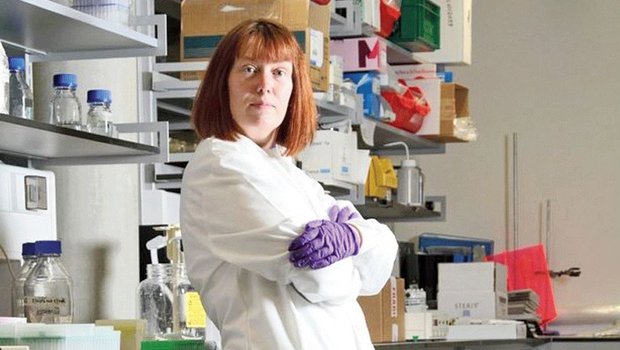London: A microbiologist has become the first human to be injected for the human trial phase of a vaccine in the UK against the novel coronavirus. The vaccine is being developed by a group of scientists at the Oxford University.
First volunteer
Elisa Granato is the first volunteer in an initial group of 800 to be part of the ground-breaking trial. The world is hoping it will be the answer for immunisation against the deadly virus. If the trials are successful, the vaccine will help in easing of lockdown, to curb rapid transmission of coronavirus.
“I’m a scientist, so I wanted to try to support the scientific process wherever I can,” Granato told the BBC. She made the commented after being injected in Oxford, where the trial began this week.
“Since I don’t study viruses I felt a bit useless these days. S so I felt like this is a very easy way for me to support the cause,” Granato said. It was her 32nd birthday Thursday when she took the injection.
Other notable participants
Granato is joined by cancer researcher Edward O’Neill as the first two candidates. One of them has been injected with the COVID-19 vaccine and the other a control vaccine which protects against meningitis.
They will now be monitored for 48 hours to observe the impact of each. Scientists will then gradually start injecting further volunteers, healthy individuals aged between 18 and 55. However, none of the participants will be aware which vaccine they have been injected with.
Researchers optimistic
“Personally I have a high degree of confidence in this vaccine,” said Sarah Gilbert. She is the professor of vaccinology at the University of Oxford’s Jenner Institute and is leading the research.
“Of course, we have to test it and get data from humans. We have to demonstrate it actually works and stops people getting infected with coronavirus. Then only we can use the vaccine in the wider population,” Gilbert said. She added she remains ‘very optimistic’ about the outcome.
Professor Andrew Pollard, director of the Oxford Vaccine Group, who is leading the trial, also had comments to offer. “We’re chasing the end of this current epidemic wave. If we don’t catch that, we won’t be able to tell whether the vaccine works in the next few months. But we do expect that there will be more cases in the future because this virus hasn’t gone away,” said Pollard.
The trial method
The researchers started screening healthy volunteers in March for the ‘ChAdOx1 nCoV-19’ vaccine trial. Most of the volunteers are from the Thames Valley Region of England. ‘ChAdOx1 nCoV-19’ is made from a virus (ChAdOx1), which is a weakened version of a common cold virus (adenovirus).
The aim of the human trial is to assess whether healthy people can be protected from COVID-19 with this new vaccine. It will also provide valuable information on safety aspects of the vaccine. Also researchers can judge its ability to generate good immune responses against the deadly virus.
Vaccines made from the ChAdOx1 virus have been given to more than 320 people to date. All have remained safe. However temporary side effects have happened such as a temperature, headache or sore arm.
Agencies






































